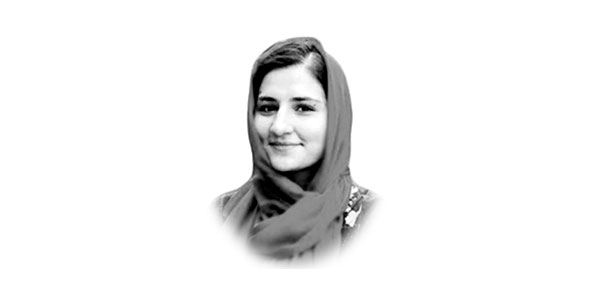Staggering democracy of Pakistan
TODAY many developing nations have a system of representative government in which citizens express their choices by voting and the policies of the government are influenced by those votes.
The advantage of democracies over alternative systems of government is that they promote equality of influence among all members of society, reducing the likelihood that a few affluent, strong elites will oppress the general populace.
Despite all its triumphs, the system is not perfect, and democracy still has flaws. Pakistani society is an unemployed and unjust society.
In addition to the economic restraints, democracy in Pakistan can play a variety of additional roles.
How can someone expect the right use of the vote from a voter who is starving and willing to vote for an out-time meal?
Pakistan’s political parties themselves are one of the biggest barriers to democracy. However, democracy must be conscious of systemic issues.
Pakistan’s most difficult endeavour began with the creation of a genuine democratic system that would guarantee Pakistan’s long-term viability, security and prosperity.
There is no democratic atmosphere or structure in Pakistan that allows for genuine political and democratic discussion, respect for other people’s opinions, or the ability to argue for one’s position.
Another significant factor is the pervasive belief in Pakistan that one must be powerful and have access to cash or feudal lords to engage in politics, regardless of aptitude, political activism, or long-term vision.
Politicians in Pakistan so serve their interests. Pakistan was initially a democratic nation.
Unexpected and sudden changes in Pakistani politics not only prevented the creation of a Constitution that reflected the needs and ideologies of the nation but also interfered with the process of changing public opinion into a new constitutional requirement in favour of democracy.
Soon after gaining its independence, Pakistan adopted the democratic system and adhered to the British model constitution, borrowing heavily from the Government of India Act of 1935.
The Establishment of an institutionalized democracy remained a distant dream in Pakistan as a postcolonial state where the steel institutions of bureaucracy and political security subsidized the democratic experience.
Pakistan has been far down the path to democracy. Due to inadequate administration, uneven bureaucratic expansion, and rising political aspirations of the military generals, the parliamentary democracy collapsed four times.
The reasons behind failure of democracy in Pakistan include Martial Law in Pakistan for many years caused many problems.
This led to beginnings of regionalism and fragmentation in the country. There was democracy, but only in name.
Politicians are responsible for creating policies; if this task is delegated to them, democracy will control the nation.
The primary reasons for Pakistan’s democracy’s collapse were a lack of respect for the nation’s Constitution and the misuse of authority.
The nation’s Constitution has continuously been broken and perverted. There have been several symbolic changes made to the country’s Constitution and legislative process.
The country has become divided because of some political leaders’ lack of political vision, tenacity and undemocratic actions.
Government officials lowered and altered the Constitution for their convenience while also respecting no restrictions on the use of force.
The biggest threat to Pakistan’s democracy is unquestionably the skepticism and the fragility of its politicians.
Because of this, the political forces have come under scrutiny, and every attempt has been made to discredit them by labelling them as corrupt and radical.
Politicians should be heavily condemned for seeking influence and playing the game for political gain rather than working to improve the community and state.
The entire purpose of founding Pakistan has been abandoned. Institutional and social corruption emerged alongside political aggregation.
It is unclear whether the state has an unwavering legal system. Democracy cannot grow without the rule of law, fairness, civil rights, and equal opportunity.
Nevertheless, despite all of democracy’s shortcomings, if the political forces can come to an understanding that the institutions of political power would not be shared, then the strength of democracy in the nation may steadily grow.
The authorized representatives are still too haughty to accept criticism and to listen. Such a faltering democracy cannot last. The political climate and temperament of Pakistan are not democratic.
They will attempt to speak about politics while also acting like a tyrant or a politician who just has their interests in mind.
The fundamental principles of democracy, however, won’t be as powerful if the democratic spectacle aims to seize and hold onto power.
The remedy lies in the words of Lord Beveridge, “Power as a means of getting things done appeals to that men share with brutes; to fear and greed; power leads those who wield it to desire it for its own sake, not for service it renders, and to seek its continuance on their own hands.
Influence as a means of getting things done appeals to that which distinguishes men from brutes.
The way out of world troubles today is to treat men as men, to enthrone influence overpower, and to make power revocable”.
We must concentrate on the suggestions if we want to make Pakistan a highly resilient democracy.
Only the thin will participate in the rule of true democracy and the people will manage their affairs rather than turning into dummies and puppets in the hands of crooked men.
Therefore, both civilian and military institutions must establish their bounds to improve democracy.
No one, whether a general or a regular citizen, is permitted to renege on the Constitution. A parliamentary form of government, regular elections, a powerful judiciary and good relations between the state’s civilian and military institutions are necessary.
It also needs a conducive political culture that supports it. In other words, the institutionalization and subsequent consolidation of democracy depend on values and beliefs of general populace.
—The writer is currently working as Research Associate with Institute of Peace and Contemporary Affairs, Islamabad.










